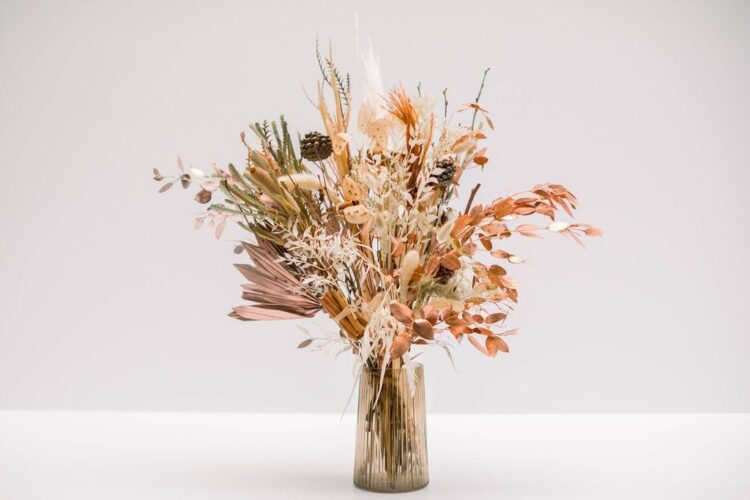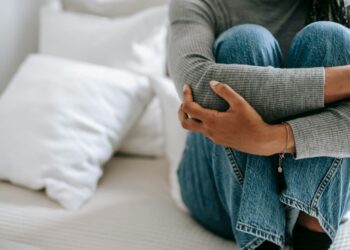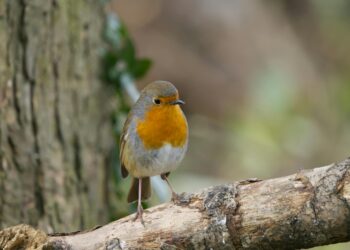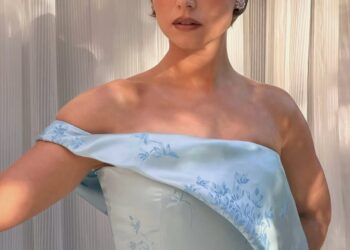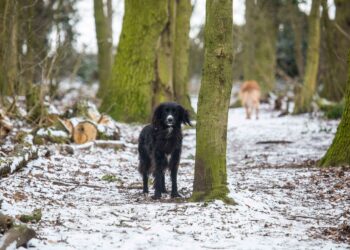Behind every bouquet is a significant environmental cost. Here’s how you can gift flowers in a more sustainable way.

Flowers have always been a trusty staple in times of celebration. From birthdays to Valentine’s Day, a blossoming bouquet has the power to uplift hearts and homes. But what is the journey of bunch of flowers from soil to vase? Behind every bouquet there is a significant environmental impact, but thankfully, there are sustainable solutions.
Buy them in bloom and support local
As consumers, we should consider thinking about flowers in the same way as other fresh produce: grown locally and enjoyed seasonally. Buying flowers that are in bloom in Ireland means you will be limiting the amount of energy that is required to ship and store the flowers.
Around 80 percent of flowers sold in the western world are imported from Kenya, Columbia, Vietnam, and Ecuador. This is because these countries are close to the equator and have ideal growing conditions, from twelve hours of daylight, to sufficient rain and hot temperatures.
This translates to a high carbon footprint: in 2018, Valentine’s Day flowers flown to the US from Columbia produced 360,000 metric tonnes of CO2, the equivalent emissions of 78,000 cars driven for one year.
Buying your flowers in bloom, and from local suppliers, means you are avoiding this significant environmental cost. Here in Ireland, we are fortunate to have a strong market of mindful florists with ethical credentials.
The Burren Flower Farm is an eco-conscious floral studio and flower farm that provides naturally grown and seasonal flowers for every occasion, without the use of harmful pesticides. You can choose from home delivery or farm pick up, and bouquets range between €50 to €80 depending on the size.
View this post on Instagram
New Moon Blooms is an ethical flower factory that works with Irish growers to create long-lasting bouquets. You can choose from letterbox size bouquets starting at €29, or you can go for more ornate arrangements for specific events, ranging from €45 to €75.
View this post on Instagram
Meanwhile, the Flower Farmers of Ireland Association provides a useful directory to find your nearest flower farmer. Focusing on freshly-harvested and home-grown flowers, there are over 50 Irish flower farmers affiliated to the association. In the directory, you can find the contact details, services provided, delivery options, and bouquet prices for all the flower farmers.
For store-bought flowers, the origins of the bouquet tends to be less traceable. Look out for labels such as ‘grown in Ireland’, which can easily be mixed up with the ‘packaged in Ireland’ label – this vague tag can still mean the flowers are imported. Supermarkets such as SuperValu, Tesco, Aldi and Lidl provide a selection of Irish-grown flowers.
The Fairtrade symbol is another one to look out for where you can. This ensures that employees of flower farms in developing countries – most of which are female – are protected by worker’s rights, receive a minimum wage, and have decent working conditions.
Dried flowers
Dried flowers have become a favoured option for floral enthusiasts lately, and they have a number of environmental benefits too.
Firstly, they last longer, and you can expect to enjoy your preserved blooms for one to three years. This means their trip to the compost bin is extended, and they consume no water in the meantime.
Carlow-based flower farmer Seonaid Renton provides an array of sustainably grown flowers and foliage. Her dried flower range is available in wreaths, bouquets, and bespoke orders, and you can order online for home delivery. You can choose from smaller bunches of dried flowers from €8 to more elaborate bouquets for €55.
Wexford based homeware and lifestyle shop The Wilds also provides bunches of dried lavender, to dried phalaris or wheat bunches.

Correct disposal
When disposing of your flowers, ensure you place them in your compost or garden waste bin, rather than your normal general waste bin, otherwise they end up in landfill.
When flowers break down in landfill, they produce methane, a harmful greenhouse gas. As for the plastic packaging, this is not biodegradable, so it should be placed in your recycling bin. Where you can, look out for paper-wrapped bouquets.
Grow your own
Finally, why not consider growing and gifting your own flowers? Irish retailers such as Connecting Nature sell a selection of native Irish wildflower seeds, such as this Butterfly and Bee Wildflower mix for €5.50. Seeds Ireland also sells certified organic flower seeds, such as these China Aster seeds for €2.80.
Main image: New Moon Blooms

